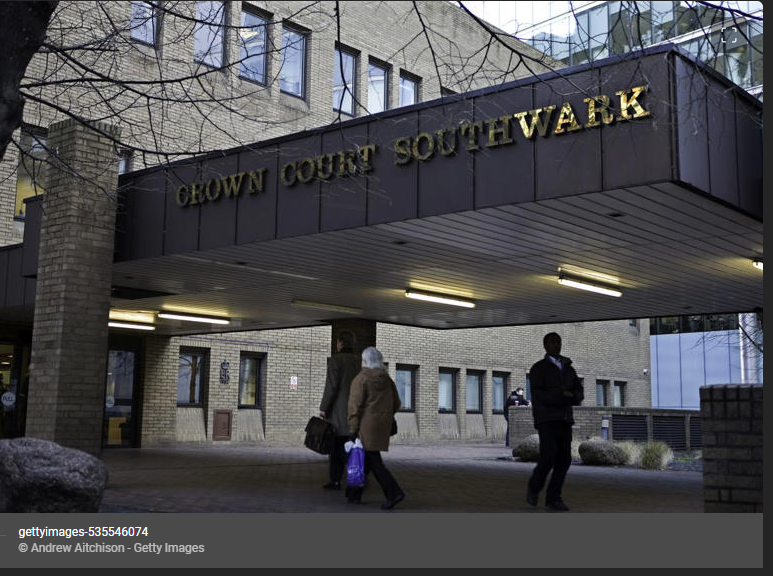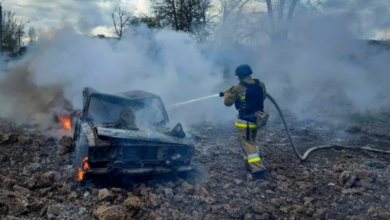UK Met Police officer exposed as a serial rapist who kept women in a cupboard under the stairs

A Met Police officer, David Carrick, aged 48, has been outed as a serial rapist. Today a court heard how he was behind more than forty attacks on women, across almost two decades. Reports say that concerns were raised to the Met multiple times and that he was allowed to continue serving. The organisation has admitted to falling short
Carrick, who worked as an armed officer in the parliamentary and diplomatic protection command (the same role undertaken by Sarah Everard’s killer, Wayne Couzens), admitted to 49 offences (including 24 charges of rape), concerning twelve different women, at Southwark Crown Court today [16 January 2023] – meaning reporting restrictions have been lifted. Those in attendance also heard how he forced some of the women to remain in a small, dark, under-the-stairs cupboard for hours on end, and how he would refer to them as his “slaves”. Along with forcing extreme sexual violence, the police officer also urinated on some victims.
It’s said that Carrick, from Stevenage in Hertfordshire, was known to his colleagues as ‘B*stard Dave’ and used his position of authority as a police officer to ‘terrorise’ victims into remaining silent, telling them that if they spoke out they wouldn’t be believed as he was a police officer. One report, from The Guardian, says the sheer scale of Carrick’s offences means he’s one of the “worst sexual offenders in modern criminal history”.
The Met has admitted to failing to spot Carrick’s wrongdoings throughout more than two decades of service. It’s reported that the force knew about at least nine of the forty-plus incidents but did not act vigilantly enough and ultimately, no action taken. The women involved either withdrew their formal complaints at the police investigation stage, or refused to make a complaint on-record.
A Met spokesperson, Barbara Gray, said of the case: “Carrick is a prolific, serial sex offender who preyed on women over a period of 17 years, abusing his position as a police officer and committing the most horrific, degrading crimes.
“He used the fact he was a police officer to control and coerce his victims. We know they felt unable to come forward sooner because he told them they would not be believed. We should have spotted his pattern of abusive behaviour and because we didn’t, we missed opportunities to remove him from the organisation. We are truly sorry that being able to continue to use his role as a police officer may have prolonged the suffering of his victims.”
DCI Iain Moor, who led the investigation into Carrick by Hertfordshire police, said: “He invested time in developing relationships with women to sustain his appetite for degradation and control. The coercive nature of his offending undermined his victims in the most destructive way.
“Many of the rape offences came with violence against the victim, who would have been physically injured […] It is unbelievable to think these offences could have been committed by a serving police officer. But these victims are now survivors and have showed incredible bravery and courage by coming forward.”
Carrick will be sentenced next month and as of tomorrow, the Met will begin the process of formally dismissing him.
Speaking about the case, Ruth Davison, Chief Executive of women’s charity Refuge, said, “The police are supposed to be our first line of defence, they are supposed to protect us from violent crime, they are supposed to hold perpetrators to account. Instead, the people who commit violent crimes against women are able to hold positions of power within the force and use their authority and status to abuse and harm, seemingly with impunity.”
She added that for too long, the message has been that ‘lessons are being learnt’ and that ‘things will change’ and yet there has “been enquiry after enquiry, promise after promise”.
“I see little evidence of any change today, and I ask myself what has to happen before crimes against women and girls are taken seriously? Last year, the government agreed to make violence against women and girls a strategic policing priority, yet here we are again, learning about the numerous violent crimes committed by a man whose job it was to protect the public,” Davison continued. “As he stood in the dock today, David Carrick remained a servicing police officer. One who had been authorised to carry firearms.
“We cannot continue to be told that these are isolated incidents, that this is ‘one bad apple’. Last month, the director general of the IOPC stood down, after serious allegations were made against him. If the office responsible for investigating police misconduct is having to investigate its own director for allegations of crimes committed against a woman, then how can anyone have any faith in its ability to regulate against misconduct across the wider force?”
She stressed that Refuge (and other organisations working in the Violence Against Women and Girls sector) has repeatedly called for more training and investment, and for the police to work more closely with relevant VAWG charities and groups, so that they may gain a better insight into behaviour patterns to watch out for and understand the unequal power dynamic at play.
“What happens next must change the culture of policing for good. A force which breeds a culture of violent misogyny is not a force which can even begin to protect women and girls,” Davison added. “Unless radical change to the way the policing system works across the country happens immediately, then women and girls will remain unsafe, and they will not have the confidence to come forward and report the violent crimes committed against them.
“Violence against women and girls has reached epidemic levels, and if the police cannot protect us from harm, then we must demand that they change the way in which they police violent men.”







